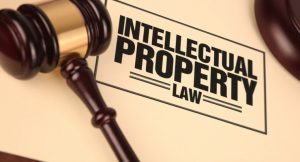BLOG / 02.28.17 /Jack Malley
All About Intellectual Property Law

When it comes to Intellectual Property Law, do you know your stuff? This is a law that outlines the rules when it comes to getting and enforcing the legal right to a variety of things such as art, design, inventions, and more. That’s because laws protect personal property, real estate, and also intangible assets and their control.
If you have questions about this law or just want to know more, consult an intellectual property attorney. They’ll be able to tell you more about the subject and advise you on specific instances. However, if you want a quick crash course on the issue for free before going in, read on to find out more!
Intellectual Property Law protects individuals that want to profit from their work. It encourages innovation as it gives people a way to profit without their ideas being misappropriated by others. According to the U.S. Constitution in Article 1 and Section 8, they can give Congress the express authority to give individuals rights that are exclusive to their creations and regulate commerce through states and abroad. These laws are looked over by the U.S. Copyright Office and the U.S. Patent and Trademark Office.
The existence of patents also gives people who invent things the right to profit by either selling their product or selling that right to someone else. The patents will be valid for up to 20 years and a surprising variety of items qualify such as manufactured goods and new machines. A patent will be awarded if an invention is not found unuseful, offensive, or to contain obvious design. The trademarks will also protect slogans, symbols and names to not only avoid confusion but prevent misleading advertising by distinguishing their rights.
The copyrights also apply to a variety of artistic and intellectual expression. It could be music, architecture, movies, writing, inventions and machines and more. Creating work creates copyright. You can use a symbol and a date for copyright, but it is not required. Copyrights are good for a surprisingly long time– the lifetime of the creator, with seventy years added on.
So, what is infringement? This term refers to use that is unauthorized when it comes to intellectual property. Owners should notify others of rights to protect against infringement by clearly alerting someone to your rights. It also helps legally, because if you have notified someone of your intellectual property, then you will have a stronger case when prosecuting an infringement if the case makes it to court. They can do this by marking a product using the Patent and Trademark Office assigned number. Patent pending can also prevent others from getting a patent on a copied or similar design before the patent is received. Marks are added to material and the mark is registered and added to the government database.
What should you do if infringement does happen? Well, your right to intellectual property will be enforced in court if you choose to file. Before you file, you should meet with an attorney and see what your legal options are. You should also give considerable thought to the process and whether that is the way you want to go. These cases are after all expensive to prosecute and the rights will not be as extensive as thought. However, if you want to give it a shot, consult an experienced attorney and see what they have to say about your situation.
What can you do if you are sued by someone who claims to own intellectual property? You still have some options. If they successfully sue you, you do have options. A court may order an injunction, or you may be found to owe someone damages. It all depends on whether owner’s rights are established and other details. A license agreement will also allow property use to go on with payments to the rightful owner of it.
At the end of the day, fighting for your property rights can make you some money. Claims of infringement have also bankrupted companies, so there’s a lot at stake. Talking to an attorney that specializes in this law may be your best bet regardless of whether you’re trying to establish your rights or defend and profit from them. If you have rights to protect, have been accused of infringement, or just need to know more, consult an intellectual property attorney today and find out everything you need to know.

